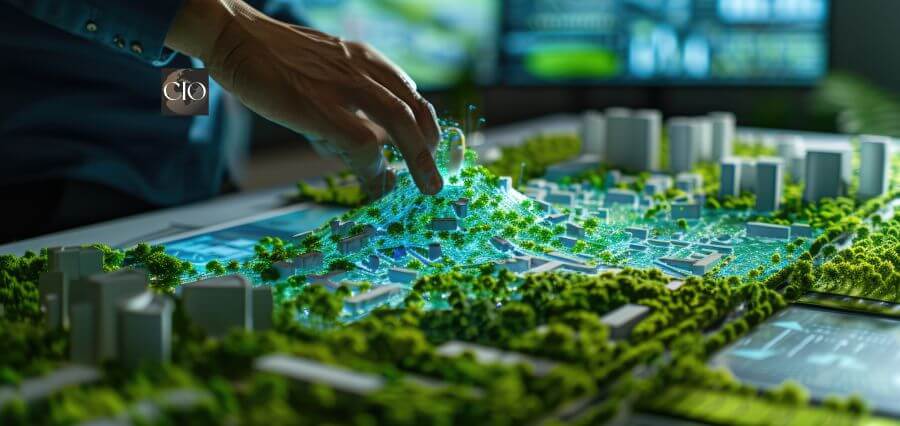Sustainable development importance has now become more obvious. Be it the climate change issues, resource depletion, or inequality among people, there has been a prevalent issue which the countries of the world have to contend with in every corner. Engineers, with their technical acumen and innovative problem-solving skills, play a key role in addressing these issues and promoting sustainability in many industries.
Understanding Sustainable Development
Sustainable development refers to the way of meeting the needs of the present generation without affecting the ability of future generations to meet their needs. This concept runs very deep and deals with things such as environmental protection, economic growth, and social equity.
The United Nations has developed 17 Sustainable Development Goals that will strive towards making this world a better place for all by the year 2030. SDGs mean that the economic, social, and environmental factors are interrelated and, therefore, require multilateral cooperation.
The Engineering View
The professionals who transform the concept into real issues or problems are engineers, applying their profession to sustainably develop solutions that would meet the needs of society but at less environmental cost.
Their specialty cuts across civil, mechanical, electrical, and environmental engineering among many more. Every branch in engineering has contributed toward sustainability-from infrastructure development, renewable energy solutions, and more.
Infrastructure and Urban Planning
The most important contributions of engineers to sustainable development are in infrastructure and urban planning. Over time, the world is experiencing population increment, and their habitats to live in are becoming overcrowded. Statistics recently projected that nearly 68% of the world population would reside in urban areas by 2050. Such changes provoke problems such as traffic congestion, pollution, and houses.
Engineers design environment-friendly cities that include public transport, greenery, and energy-saving buildings. For example, the use of technology for developing smart cities to consume resources efficiently. Smart grids help to track the amount of energy consumed and even monitor the way the same energy reaches each location and saves in return more of the same resources from getting wasted. All these facilities enhance life and reduce carbon footprint.
Renewable Energy Solutions
Another key area where engineers are working is renewable energy. The world is shifting from fossil fuel, and engineers are playing crucial roles in the development and implementation of clean energy technologies. As the use of solar, wind, hydro, and geothermal energy is expanding faster, the global renewable energy capacity is likely to reach 4,800 gigawatts by 2030, reports International Renewable Energy Agency.
Engineers design and optimize renewable energy systems to be efficient, cost-effective, and scalable. They improve energy storage technologies, which is an essential part of the management of intermittence of renewable sources. They are highly involved in energy consumption reduction and reduction of greenhouse gases emission through incorporation of energy-efficient designs in buildings and infrastructure.
Water Management
Clean water is so important to humankind. And yet, still some corners of this world are already running low in their clean water supplies due to over-extraction, pollution, and climate changes. Engineers are very much needed when it comes to designing systems in water management and sustainability.
Examples include the designing of rainwater harvesting systems, wastewater treatment systems, and water recycling. The water systems, besides providing alternative sources of water, protect local ecosystems from pollution. Innovative designs also incorporate desalination and efficient irrigation technologies in agriculture that can preserve water resources.
Waste Management and Circular Economy
The world is increasingly producing waste, which is a major issue in sustainable development. Engineers are expected to design solutions that minimize the generation of waste and maximize recycling and reuse. There is growing momentum behind the idea of a circular economy, whereby products are designed to be reused, remanufactured, or recycled.
Engineers design products and systems from resource extraction through their end-of-life disposal. It reduces the environmental effects of waste, saves precious resources, and helps people live more sustainably. A circular economy can create $4.5 trillion in additional economic value by 2030, creating jobs and market opportunities.
Education and Advocacy
Engineers contribute both in a technical capacity and through education, influencing ‘change agents’ to ‘act’ for sustainability. They raise their voices about the issues affecting sustainable lifestyles by engaging communities, businesses, and policymakers-they ‘share their knowledge’, run workshops, and interact with many stakeholders.
The nature of engineering education is changing towards the aspects of sustainability. The curricula at the universities and colleges ensure that the future engineers are competent enough to face the challenges in achieving sustainable futures.
Conclusion
The role of engineers in sustainable development multifaceted and crucial. From infrastructure and renewable energy systems, to managing water resources and waste, engineers will always be a part of the solutions that can save the planet and improve the quality of life.
More critical issues the global community continues to face are in the hands of the experts of engineers to lead them to pave the way to a better future. With their innovative spirit and commitment to problem-solving, not only are engineers building structures and systems but also shaping the future world where sustainability goes alongside human well-being.

